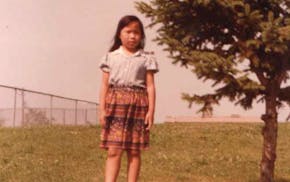Opinion editor's note: Strib Voices publishes a mix of material from 11 contributing columnists, along with other commentary online and in print each day. To contribute, click here.
•••
My friend Steve Downing would bring a pair of red wingtip shoes and a neck tie when he went deer hunting. After a kill, he would put them on before field dressing the buck, a formal gesture of respect for the animal that gave its life for his supper.
Steve's quirky ceremony once seemed strange and time-consuming to me, but I still think about it every time I go hunting. And again, a few months ago when Steve died of cancer. I also think about the time Steve spent caring for his wife, Kathy, as she died from a degenerative disease. How we spend time is who we are.
These days, time seems in short supply. Every Friday, my mother, sibling and I go to the Walmart in Hibbing. They don't drive. Mom used to drive, but had a stroke in 2022. When I shop by myself, it's 20 minutes, in and out. But mom walks slow, so we take our time. Sewing supplies. Yogurt. Soup.
My immediate family's shopping list reads a little different. Towels. Notebooks. A bath caddy to carry soap and shampoo. This fall, our oldest son transferred from the local community college to a four-year school in another state. His twin brothers are still home for their senior year of high school.
How times change. I still vividly remember three boys in diapers at the same time. A young teacher and a stay-at-home mom pitching against swaddled windmills. The cost of diapers seemed every bit as impossible back then as the price of tuition does now. At least now I won't have to haul the aftermath to the dump.
Looking out for my mom and kids puts me in what is sometimes called the "sandwich generation," adults providing care for minor children and an aging parent at the same time. About 2.5 million people fall into this category, according to a 2022 study published by researchers at the University of Michigan.
I meet people in this situation all the time. After mom's stroke, friends reached out to tell me about their own experiences. Family members who work in health care guided me through dark times. At the clinic, I now share knowing glances with the invisible people who quietly do what must be done. Many of them have it much harder than us.
The same university study shows that most people in the sandwich generation work full time while providing care. Those providing care to parents over 65 while caring for children under 18 are almost twice as likely to report financial hardships and more likely to report emotional strain than those who care for parents alone. Despite that, absenteeism is rare. It's always nice when peer-reviewed research confirms why your hair is turning gray.
Doing all of this at once wasn't something I expected so soon, but life is not a needle resting in the groove of a familiar old song. It's live jazz improvisation: not always good, but sometimes truly great.
Spending so much time with my mother has helped me understand the sacrifices a teen mom made all those years ago. She was a high school dropout with a genius IQ, reading Dickens in a trailer house full of toddlers. I don't mind hauling her groceries.
And raising kids didn't kill my wife and me; it made us stronger. Our marriage, too. Love is not like the movies. It's an action verb learned through experience.
So much of life is fear of the unknown. What happens if this or because that? But the chaos teaches order. Each twist previews what's to come for ourselves and our kids.
These life events keep piling up. My grandfather turned 90 in May, the same month my wife's parents celebrated their 50th wedding anniversary. We took a family road trip this year to Yellowstone, perhaps our last with all three boys living under one roof. Milestones whiz past like lines on the highway.
I'm trying to enjoy the time. The baseball games and backyard bonfires won't last forever. Smoke rises. Ash remains.
We form a long line from somewhere else to here, then onward to some distant glow on the horizon. We stand like a row of dominoes, each set to fall in sequence.
To paraphrase Butch Cassidy: It's the fall that kills you. But it's that part of the fall before you hit bottom when you're really alive. Air rushes by. The heart quickens. It's a short drop, some shorter than others, but that's how it goes. Without gravity, we'd be lost in space. Time, that inevitable force, carries us where we must go and allows us to do what must be done.
Brown: Relying on law enforcement to solve mental health crisis puts lives at risk

